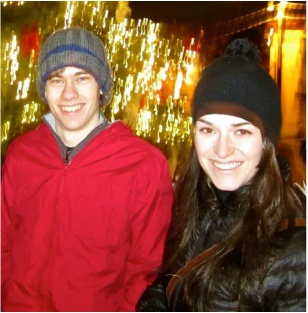
Thank you for providing me the opportunity to again support interests that Austin and I shared. This year, I am focusing on science education, music, and the outdoors. Once again, I have chosen to donate to organizations that meet a few criteria that I think Austin would have appreciated. First, I looked for organizations that specifically target participants who would otherwise not have access to these types of services (e.g., low-income, underrepresented minorities). Second, I wanted these organizations to be research-based, meaning that they use data to demonstrate their effectiveness and improve outcomes. Finally, I used Charity Navigator to demonstrate that these organizations are accountable, transparent, and that the majority of their funding goes directly to their cause (rather than to administration and fundraising). The exception here was SARSEF, which has an annual income of less than one million dollars and, thus, is not featured on Charity Navigator, but maintains a very strong reputation in Southern Arizona.
Southern Arizona Research, Science, and Engineering Foundation $500
Austin and I were both lucky to have exposure to high quality science education in our schools, which contributed to us both choosing to study science. However, science education faces funding shortages and suffers as a function of not being featured on annual tests, taking a backseat to english and math. The Southern Arizona Research, Science, and Engineering Foundation (SARSEF) is the only organization in Southern Arizona that does STEM outreach for schools that cannot afford lab equipment and science education, particularly rural schools on neighboring reservations, as well as schools in low-income areas. They provide professional development for teachers, do presentations and experiments for students who would not otherwise be exposed to the scientific method outside of a textbook, host “science nights” for parents and students, and host an annual science and engineering fair where students do hands-on STEM activities and interact with science professionals. Additionally, they are one of the few organizations that starts to work with students as young as kindergarten to start the love of science and embrace curiosity at a young age.
Big City Mountaineers $250
Some of my favorite memories with Austin are hiking with him. We were lucky to come from a family that had the capability and love of nature to take us outside on these outings from an early age. However, some young people, especially those in urban environments, may not have these experiences without help from outside organizations. Big City Mountaineers serves underrepresented youth from urban environments with wilderness mentoring expeditions that instill life skills, as well as exposure to the natural world. Additionally, I appreciate the Big City Mountaineers research the effectiveness of their programs, and that those programs demonstrably increase participants’ likelihood of retention in school and reduce the rates of violence and drug use.
The Harmony Project $250
Austin and I were both able to learn instruments through our schools, which helped us developmentally as well as instilled an appreciation for the arts. However, as school budgets get ever tighter, the first programs to be cut are in music and the arts, especially in low-income schools. Organizations like The Harmony Project in Los Angeles work to reach out to underrepresented and low-income youth to provide them music lessons and ensemble participation. Additionally, they are a research-based non-profit organization that targets individual students, their families, and their communities by teaching, practicing, and performing music for diverse communities.
 RSS Feed
RSS Feed